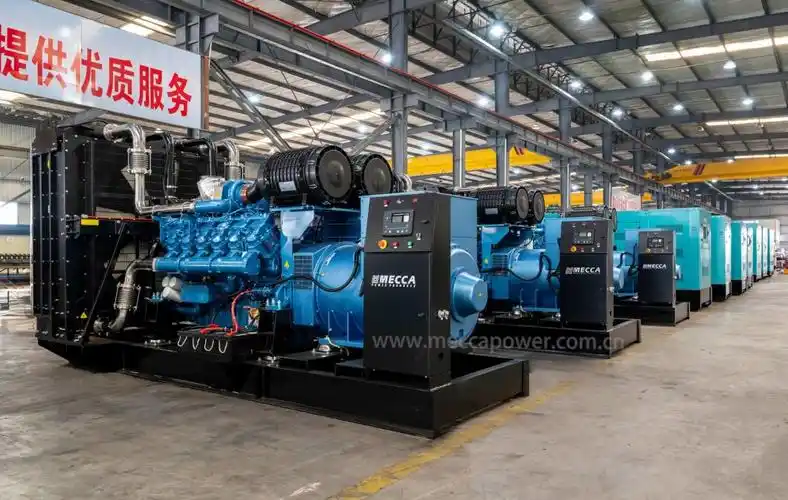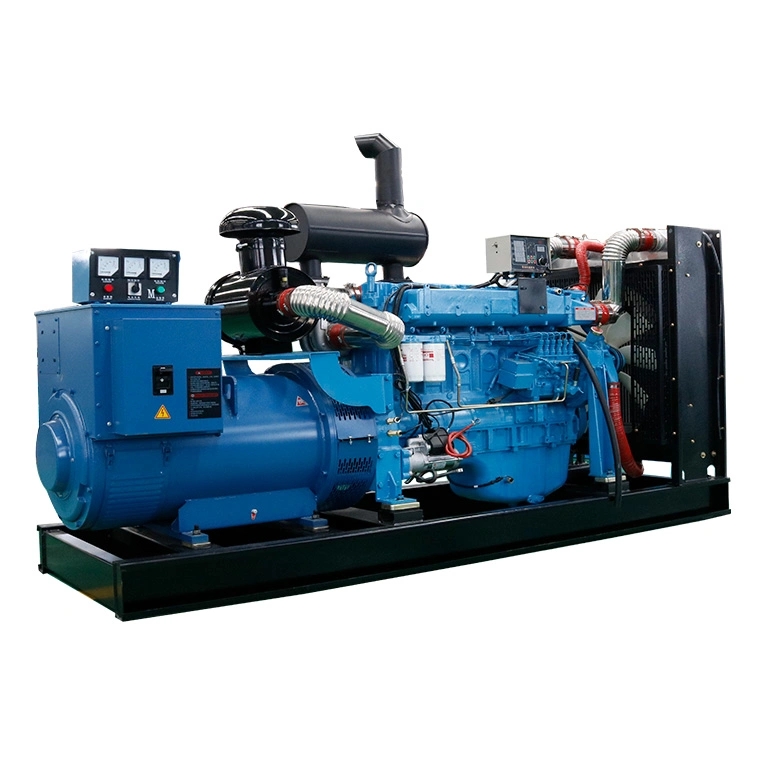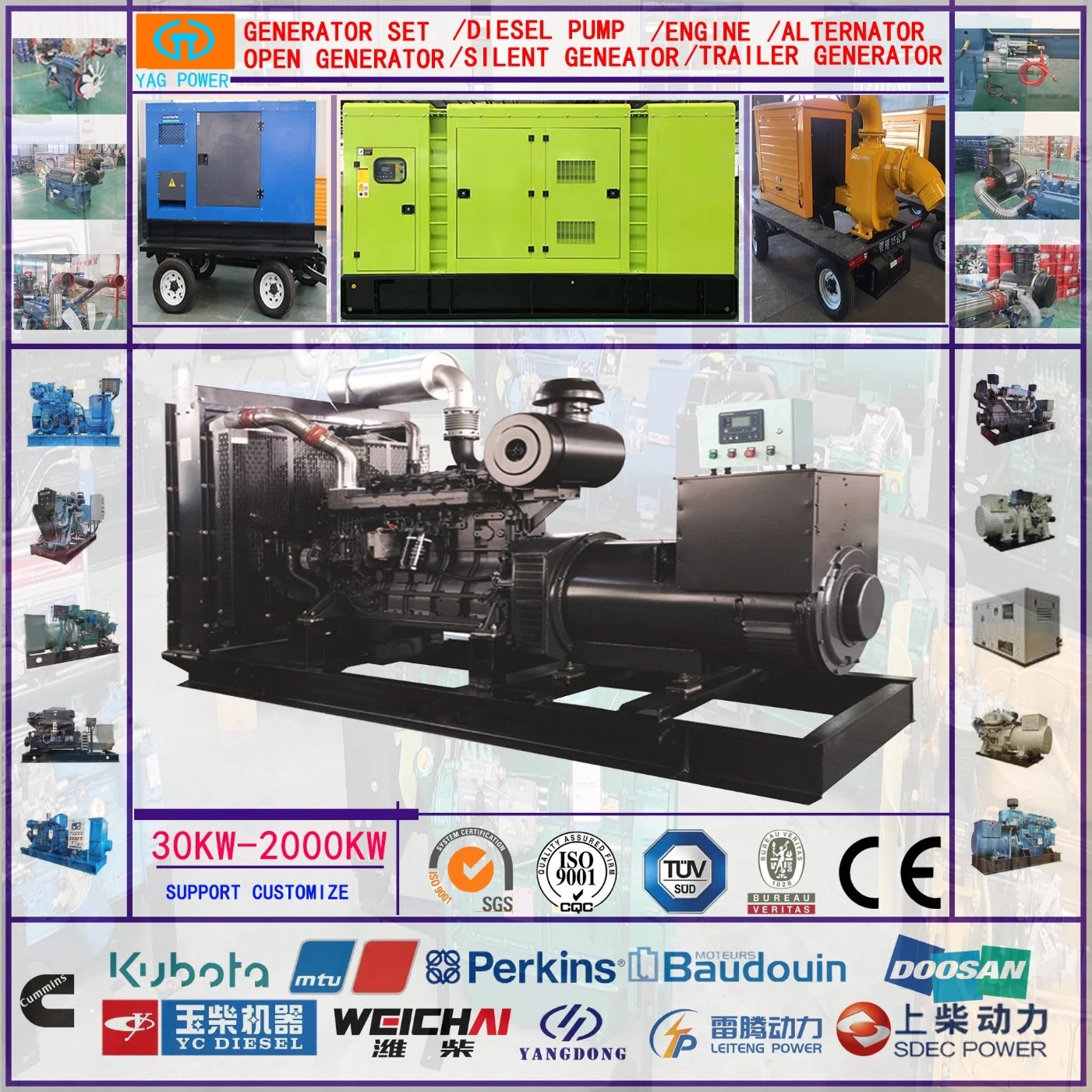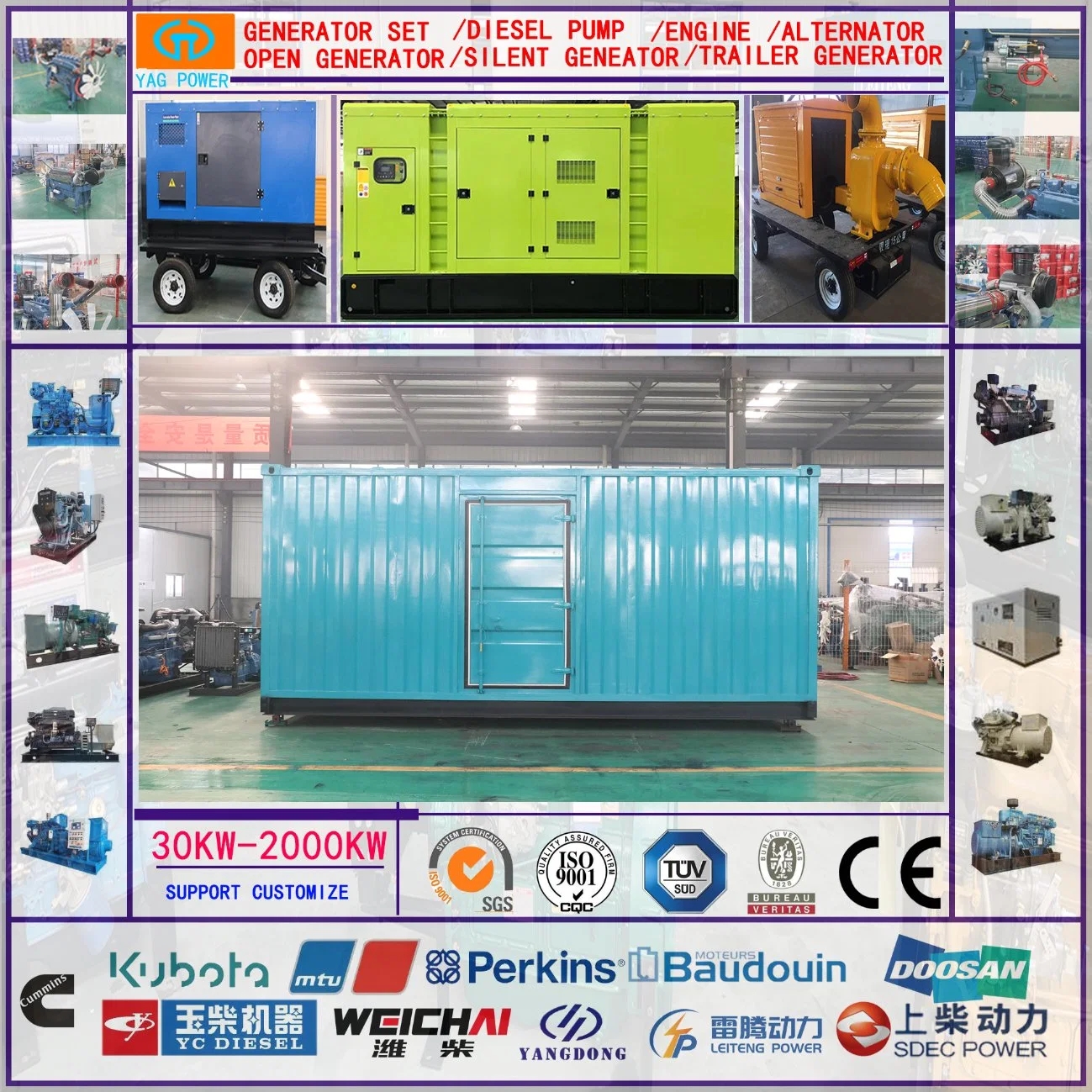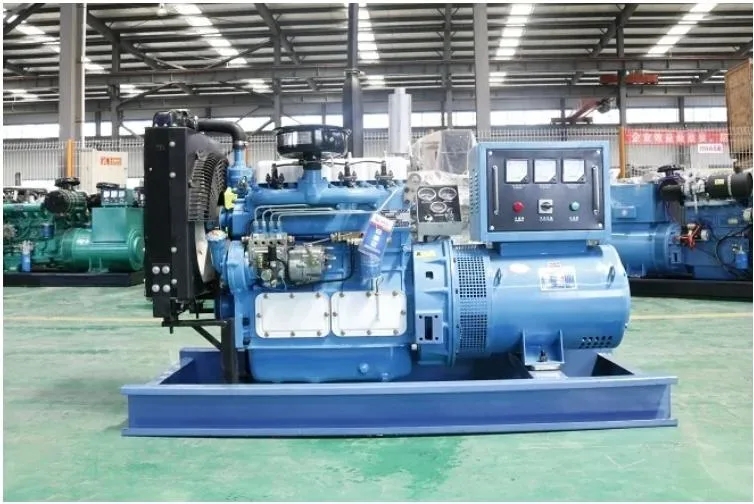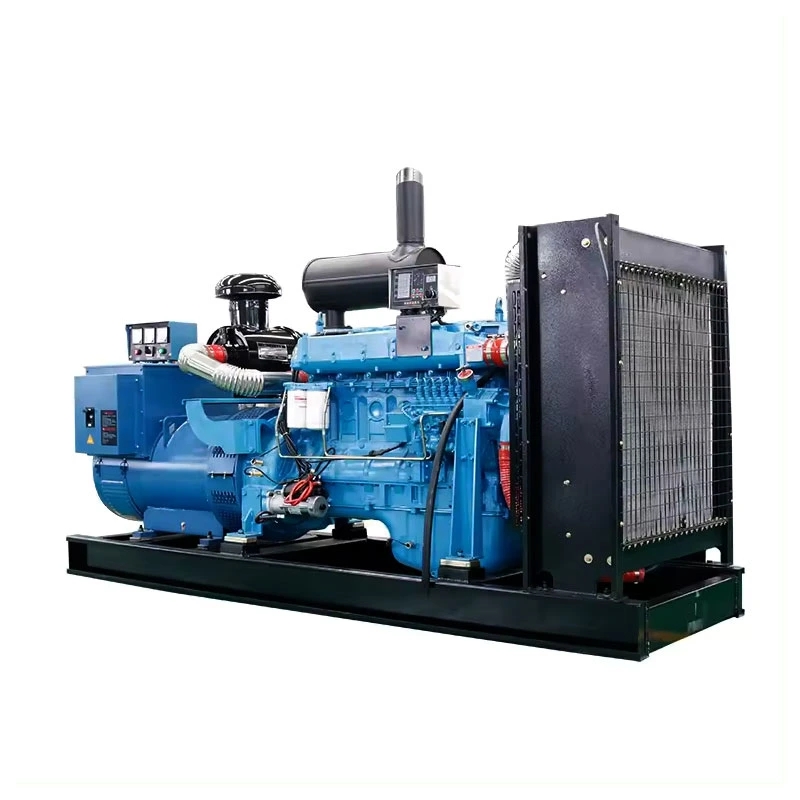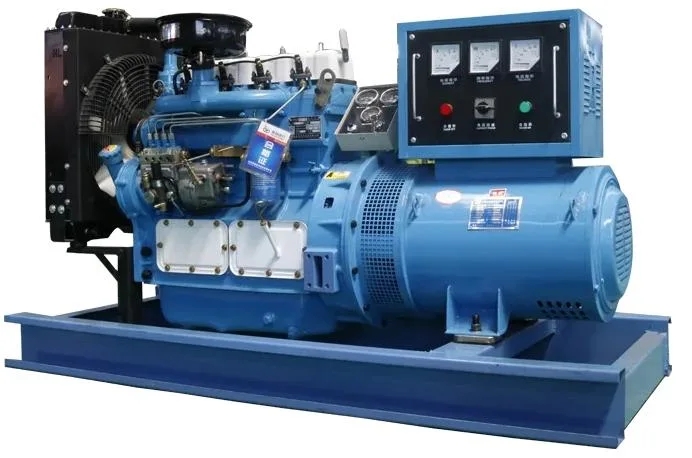Table of Contents
ToggleWhen it comes to power generation, especially in industrial and commercial settings, a 1000kW diesel generator stands out as a reliable choice. But what exactly is it, and why should you consider one? Let’s dive into the world of diesel generators and explore everything you need to know about this powerhouse of energy.
What is a 1000kW Diesel Generator?
A 1000kW diesel generator is a robust machine designed to convert diesel fuel into electrical energy. It’s capable of producing 1000 kilowatts of power, making it suitable for large-scale operations. Whether you’re powering a construction site, a manufacturing plant, or a hospital, this generator can handle the load with ease.
Key Features of 1000kW Diesel Generators
These generators come packed with features that enhance their performance and usability. Here are some key features you should know about:
- High Power Output: With a capacity of 1000kW, these generators can support multiple heavy-duty applications simultaneously. Imagine running an entire factory or a large event without worrying about power interruptions.
- Durability: Built to withstand harsh conditions, they often have weatherproof enclosures and robust components. This durability means they can operate in extreme temperatures, whether it’s the sweltering heat of summer or the biting cold of winter.
- Fuel Efficiency: Diesel engines are known for their fuel efficiency, allowing for longer operation times between refuels. This efficiency translates to lower operational costs, which is a significant advantage for businesses looking to cut expenses.
- Automatic Start/Stop: Many models come with automatic controls that start the generator when the power goes out and stop it when the power is restored. This feature is particularly useful for critical applications where downtime can lead to significant losses.
How Does a Diesel Generator Work?
At its core, a diesel generator operates on a simple principle: it burns diesel fuel to create mechanical energy, which is then converted into electrical energy. The process involves several key components:
- Engine: The heart of the generator, where diesel fuel is combusted. The engine’s design and efficiency play a crucial role in the overall performance of the generator.
- Alternator: Converts mechanical energy from the engine into electrical energy. The quality of the alternator can significantly affect the generator’s output and stability.
- Control Panel: Manages the generator’s operations, including starting and stopping. A user-friendly control panel can make a world of difference, especially for operators who may not be technically inclined.
- Cooling System: Keeps the engine at optimal temperatures to prevent overheating. Proper cooling is essential for maintaining the longevity and efficiency of the generator.
Applications of 1000kW Diesel Generators
So, where can you find these powerful machines in action? Let’s explore some common applications.
Industrial Uses
In industries like manufacturing, construction, and mining, a 1000kW diesel generator is often used as a primary or backup power source. It can run heavy machinery, lighting, and other essential equipment, ensuring that operations continue smoothly even during power outages. For instance, in a manufacturing plant, a sudden power loss can halt production, leading to costly delays. A diesel generator can kick in immediately, keeping the assembly lines moving.
Commercial Uses
Retail stores, hospitals, and data centers also rely on these generators. For instance, a hospital needs a constant power supply to keep life-saving equipment running. A 1000kW diesel generator can provide that peace of mind, ensuring that critical services are never interrupted. Similarly, data centers, which house sensitive information and require constant power, depend on these generators to prevent data loss and maintain operations.
Advantages of Using a 1000kW Diesel Generator
Why should you consider investing in a 1000kW diesel generator? Here are some compelling advantages:
Fuel Efficiency
Diesel generators are known for their fuel efficiency compared to gasoline generators. This means you can run your operations longer without frequent refueling, saving you time and money in the long run. Think about it: if you’re running a construction site, the last thing you want is to stop work to refuel your generator. With a diesel generator, you can keep the momentum going.
Reliability and Durability
When you need power, you want a generator that won’t let you down. Diesel generators are built to last, often featuring heavy-duty components that can withstand tough conditions. This reliability is crucial for businesses that can’t afford downtime. Imagine a hospital relying on a generator during a storm; any failure could have dire consequences. Diesel generators are designed to perform under pressure.
Choosing the Right 1000kW Diesel Generator
With so many options available, how do you choose the right one for your needs? Here are some factors to consider:
Factors to Consider
- Power Requirements: Assess your power needs to ensure the generator can handle your load. It’s essential to calculate the total wattage of all the equipment you plan to run to avoid overloading the generator.
- Fuel Type: While diesel is the most common, some generators can run on alternative fuels. Depending on your location and availability, you might want to explore options like biodiesel or natural gas.
- Noise Levels: Consider the noise output, especially if the generator will be used in populated areas. Some models are designed to operate quietly, which can be a significant advantage in residential or urban settings.
- Portability: If you need to move the generator frequently, look for a model that’s easy to transport. Some generators come with wheels or are designed to be mounted on trailers for easy mobility.
Top Brands in the Market
Some of the leading brands in the diesel generator market include:
- Caterpillar: Known for their robust and reliable generators, Caterpillar has a long-standing reputation in the industry. Their generators are often used in critical applications where reliability is paramount.
- Cummins: Offers a wide range of power solutions with excellent customer support. Cummins generators are known for their innovative technology and fuel efficiency.
- Perkins: Renowned for their fuel-efficient engines and innovative technology. Perkins generators are often favored for their performance and longevity.
Maintenance Tips for Diesel Generators
To keep your 1000kW diesel generator running smoothly, regular maintenance is essential. Just like a car needs oil changes and tune-ups, your generator requires attention to ensure it operates efficiently and reliably. Here are some tips to help you out:
Regular Checks and Servicing
- Oil Changes: Regularly change the oil to keep the engine lubricated and running efficiently. The oil in your generator acts as a lifeblood, reducing friction and preventing wear and tear. It’s generally recommended to change the oil every 250 hours of operation or at least once a year, whichever comes first. Always use the manufacturer-recommended oil type to ensure optimal performance.
- Filter Replacements: Replace air and fuel filters as needed to ensure clean fuel and air supply. Dirty filters can restrict airflow and fuel flow, leading to decreased performance and efficiency. A good rule of thumb is to check the filters every 100 hours of operation and replace them as necessary.
- Battery Maintenance: Check the battery regularly to ensure it’s charged and functioning properly. Batteries can lose charge over time, especially if the generator isn’t used frequently. Clean the battery terminals to prevent corrosion, and consider using a trickle charger if the generator will be idle for an extended period.
- Cooling System Checks: The cooling system is vital for preventing overheating. Regularly check the coolant levels and inspect hoses for leaks or wear. If you notice any issues, address them immediately to avoid costly repairs down the line.
- Fuel System Maintenance: Ensure that the fuel system is clean and free of contaminants. Water and dirt can cause significant damage to the engine. Consider using fuel additives to help keep the fuel system clean and to prevent microbial growth in the fuel tank.
Troubleshooting Common Issues
Even the best generators can run into problems. Here are some common issues and how to troubleshoot them:
- Generator Won’t Start: If your generator refuses to start, check the fuel supply first. Ensure there’s enough diesel in the tank and that the fuel is clean. Next, inspect the battery; a dead or weak battery is a common culprit. If the battery is fine, check the starter motor and ignition system.
- Overheating: If your generator is overheating, it could be due to low coolant levels or a malfunctioning cooling system. Check the coolant levels and inspect the radiator for blockages. Ensure that the cooling fan is functioning correctly, as a faulty fan can lead to overheating.
- Unusual Noises: Strange sounds can indicate mechanical issues. If you hear knocking, grinding, or excessive vibration, it’s essential to investigate immediately. Check for loose components, worn bearings, or other signs of wear. Ignoring these sounds can lead to more severe damage.
- Power Fluctuations: If you notice fluctuations in power output, it could be due to a faulty alternator or issues with the load. Check the connections and ensure that the load is within the generator’s capacity. If the problem persists, it may be time to consult a professional.
- Excessive Smoke: If your generator is emitting excessive smoke, it could indicate a problem with the fuel system or engine. Blue smoke often means oil is burning, while black smoke indicates an overly rich fuel mixture. Addressing these issues promptly can prevent further damage.
Conclusion: Is a 1000kW Diesel Generator Right for You?
In conclusion, a 1000kW diesel generator can be a game-changer for businesses that require reliable power. With its fuel efficiency, durability, and versatility, it’s an investment that can pay off in the long run. Whether you’re in construction, healthcare, or any other industry that demands consistent power, this generator could be the solution you’ve been looking for.
Assessing Your Needs
Before making a decision, it’s crucial to assess your specific power needs. Consider the following questions:
- What is your total power requirement? Calculate the wattage of all the equipment you plan to run. This will help you determine if a 1000kW generator is sufficient or if you need a larger unit.
- How often will you use the generator? If you need a generator for occasional use, a 1000kW model might be overkill. However, if you rely on it for daily operations, its capacity could be invaluable.
- What are your budget constraints? While a 1000kW diesel generator is a significant investment, consider the long-term savings on fuel and maintenance. Sometimes, spending a bit more upfront can lead to substantial savings down the line.
Final Thoughts
So, are you ready to power up your operations with a 1000kW diesel generator? The choice is yours, but with all the benefits it offers, it’s hard to go wrong! Whether you’re looking for a reliable backup power source or a primary generator for your operations, a 1000kW diesel generator can provide the peace of mind you need.
In a world where power outages can disrupt business and life, having a dependable generator is not just a luxury; it’s a necessity. So, take the plunge, do your research, and find the right generator that fits your needs. You’ll be glad you did when the lights stay on, and your operations run smoothly, no matter what.




